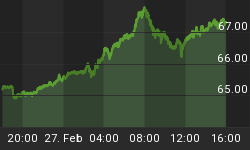Honest Money Gold & Silver Report
Questions & Answers
About Money
The following questions were posted on the Honest Money website two weeks ago. They are part of an on-going discussion about money.
Questions:
-
What is meant by the term: purchasing power?
-
What is meant by the term: common medium of exchange?
-
What is more important - the quality or quantity of money?
I received a number of replies that answered the questions, and was presently surprised by the depth of some of the responses. My answers are below.
Purchasing Power
The objective exchange value of money is the purchasing power of money; it expresses the amount of goods that can be had by exchange. Purchasing power is the quality of money and is distinct from the quantity of money.
Adam Smith has this to say on the subject in his masterful work, the Wealth of Nations:
"Wealth, as Mr. Hobbes says, is power. But the person who either acquires, or succeeds to a great fortune, does not necessarily acquire or succeed to any political power, either civil or military. His fortune may, perhaps, afford him the means of acquiring both, but the mere possession of that fortune does not necessarily convey to him either. The power which that possession immediately and directly conveys to him, is the power of purchasing; a certain command over all the labour, or over all the produce of labour, which is then in the market. His fortune is greater or less, precisely in proportion to the extent of this power; or to the quantity either of other men's labour, or, what is the same thing, of the produce of other men's labour, which it enables him to purchase or command. The exchangeable value of everything must always be precisely equal to the extent of this power which it conveys to its owner."
Common Medium of Exchange
Trade first took place by barter - the direct exchange of one commodity for another. Men traded with other men to improve their lot in life, to obtain things they needed to survive: food, shelter, clothing and other necessities.
Traders quickly discovered that they could not always find another trader with the goods they wanted; or that when they did find one, they did not have the goods the other wanted. Consequently, exchange did not take place.
Soon it became apparent that there were goods in greater demand compared to other goods. These commodities would be accepted for other goods at almost any time. Traders discovered that if they were in possession of the goods in constant demand, they could later trade them for other goods they needed.
This led men to accumulate goods in trade they did not need for immediate consumption, but by obtaining these goods, they could later exchange them for goods that were needed for direct consumption. Ludwig von Mises sums it up nicely when he wrote:
"A medium of exchange is a good which people acquire neither for their own consumption nor for employment in their own production activities, but with the intention of exchanging it at a later date against those goods which they want to use either for consumption or for production.
Money is a medium of exchange. It is the most marketable good which people acquire because they want to offer it in later acts of interpersonal exchange. Money is the thing which serves as the generally accepted and commonly used medium of exchange."
Quantity vs. Quality
When the quality (purchasing power) of money is deteriorating it requires more units to buy the same amount of goods. The price of goods is said to go up - all other things being equal. This rise in the price of goods is known as inflation. Mises explains it by saying:
"If the objective exchange value of a good is its power to command a certain quantity of other goods in exchange, its price is this actual quantity of other goods."
If our income buys less than it used to, more income is needed to keep one's standard of living the same. Loss of purchasing power is loss of wealth.
If the quality of our money is falling, our standard of living is eroding along with it. We must work harder and earn more income - just to stay even. A greater quantity of money is needed to make up for its loss of quality (purchasing power).
Quality is much more important than quantity. An excessive quantity of money can debase its purchasing power as the U.S. dollar shows. Since the creation of the Fed in 1913 the dollar has lost 95% of its purchasing power - that's why houses and cars and college educations cost so much.
A new set of questions will be posted on the website later this week. Any and all responses are welcome.

Come visit our new website: Honest Money Gold & Silver Report
New Book Coming in 2008 - Honest Money















